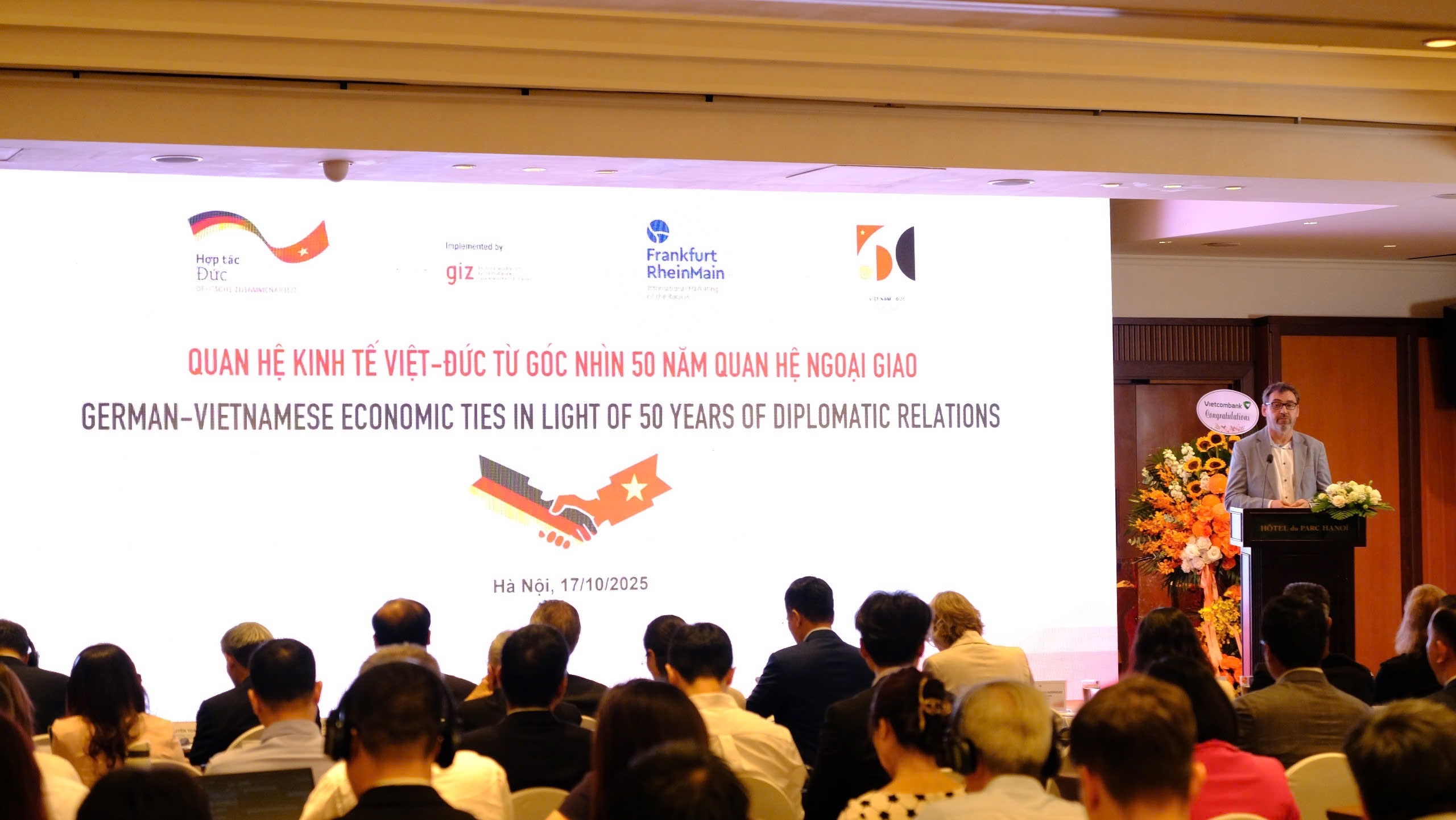
Viet Nam, Germany celebrate 50 Years of partnership
19:05 | 23/03/2025 10:47 | 17/10/2025News and Events
In recent years, black garlic has emerged as a niche but fast-growing product in global health food markets. At the forefront of this trend in Southeast Asia is Thailand’s Nopphada Superfoods Company Limited, a third-generation family business that has transformed humble local garlic into a high-value export product. The company’s journey offers useful insights for other ASEAN businesses seeking to develop value-added agricultural products and navigate international markets.
 |
| Outside of Nopphada Superfoods Co., Ltd. factory in Thailand's Lamphun Province. |
Nopphada’s story began with a practical challenge faced by many Thai farmers. Fresh garlic, a traditional crop in the northern provinces, had become vulnerable to market volatility and falling prices as trade liberalization exposed local producers to stiff competition.
In response, the family behind Nopphada sought ways to differentiate their product and add value. Their answer was black garlic, a fermented version of the common bulb known for its enhanced taste and purported health benefits.
The path to producing black garlic at scale required both ingenuity and persistence. The company adapted fermentation technology observed in Japan and refined it through collaboration with Thai researchers at Chiang Mai University.
This process, which relies on carefully controlled heat and humidity, converts garlic’s natural sugars and amino acids into bioactive compounds, giving the final product its distinctive black color and complex flavor. Crucially, the company developed its own quality control systems to ensure consistency in the levels of these compounds—a step that would later prove vital in meeting international food safety standards.
Beyond its core black garlic offerings, Nopphada has steadily expanded its product portfolio. It now produces garlic powder, pickled garlic, black garlic powder, pickled ginger, dried fruits, herbs, and a line of specialty vinegars such as black cider vinegar. T
While much of the appeal lies in the unique taste of black garlic, the company also highlights a range of health benefits associated with the product, such as improved liver function, blood sugar regulation, and antioxidant effects. These claims are supported by elevated levels of bioactive compounds like S-allyl-cysteine and GABA in the final product.
According to CEO Noppahada Atikakamphu, Nopphada’s success has been underpinned by its strong relationships with local farmers. Recognizing that stable supply chains require mutual benefit, the company works directly with growers to ensure consistent quality and offers credit and technical guidance to support sustainable production. Farmers are contracted under clear guidelines, helping them secure more stable income while allowing Nopphada to maintain high standards for its raw materials.
 |
| Noppahada Atikakamphu, CEO of Nopphada Superfoods. |
Another key lesson from Nopphada’s experience is the importance of flexible market strategies, Atikakamphu said. Nopphada embraced digital channels early, using ecommerce and trade fairs organized by Thailand’s Ministry of Commerce to reach global buyers. Today, 90 percent of its sales come from direct-to-consumer channels, with total sales revenue approaching 150 million baht annually.
However, the CEO emphasized that the journey has not been without challenges. Maintaining precise control of moisture during large-scale production is technically demanding, and ensuring food safety for innovative products like black cider vinegar requires constant vigilance.
In addition, navigating regulatory landscapes in multiple export markets remains a complex task. However, the company’s willingness to invest in R&D, quality systems, and farmer partnerships continues to give it an edge, said Atikakamphu.
For ASEAN businesses looking to emulate Nopphada’s success, several themes stand out. First is the importance of moving beyond commodity products by investing in technology and branding. Second is the value of controlling the entire value chain, from raw materials to finished goods.
Third is the need to adopt flexible, market-driven approaches that can adapt to changing global conditions. Perhaps most important of all is the recognition that sustainable success depends on building lasting relationships with local producers and ensuring that value creation is shared along the supply chain.

19:05 | 23/03/2025 10:47 | 17/10/2025News and Events

19:05 | 23/03/2025 22:06 | 16/10/2025News and Events

19:05 | 23/03/2025 21:01 | 16/10/2025News and Events

19:05 | 23/03/2025 20:59 | 16/10/2025Trade

19:05 | 23/03/2025 20:56 | 16/10/2025Trade